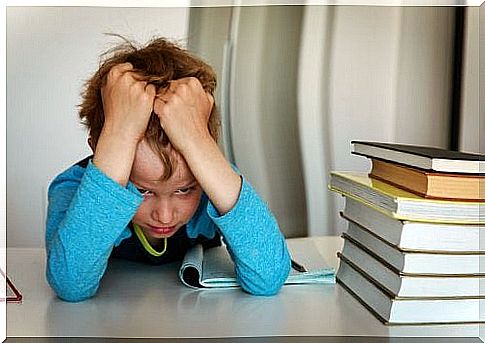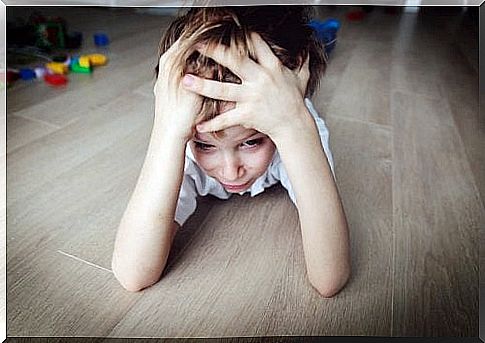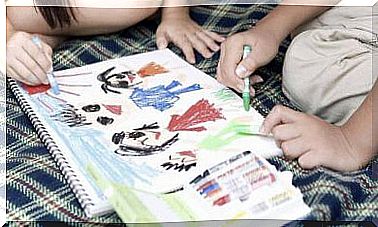8 Tips For Preventing Stress In Children – You Are Mom

In the face of today’s society’s demands on children, it is essential to take measures to prevent stress in children. Homework, cohabitation at home and at school, in addition to the pressure to comply with standards can trigger stress in children.
Therefore, one of the most important tasks of parents is to learn to act confidently in these situations.
“Just as there is no such thing as perfect happiness, it is impossible to live without stress. The organism is in a permanent process of adaptation to the requirements of its environment, on the one hand, and to those of its own development, on the other. In children, the process of maintaining a constant internal environment requires an incredible capacity for adaptation. ”
-José Luis Gonzales de Rivera-
If you notice sudden changes in your child’s mood or behavior, he may need special care. Irritability, anxiety and even physical discomfort for no apparent reason are signs of stress.
This condition is also manifested by loss of sleep, lack of appetite and motivation. When faced with any of these signs, or as a preventive measure, practice the following strategies.
What to do to prevent stress in children?
1. Decrease the pace and pressure in the daily routine
Children who live on the edge of time are never quiet children. Make sure that in the morning, before going to school, your children have time to calmly prepare.
Starting the day with screaming, rushing, and forgetting isn’t the best idea for a relaxed day. From the day before, be sure that everything is ready for a new day.
2. Talk to the children whenever you have the chance.
It is essential that you are aware if there is anything that overwhelms your children in their daily lives. Ask them if everything is going well in school, make sure they are not being harassed, and watch for signs.
While you can’t and shouldn’t try to solve all of their problems, you will guide them to respond in the best way.

3. Monitor the amount of extracurricular activities
More and more children are enrolled in numerous artistic or sporting activities. And, while it’s important to cultivate an interest and a talent, it’s just as important to allow them time to be children. Do what you can so that the amount of responsibility and commitment does not become oppressive and damaging.
4. Be role models of optimistic behavior
As we have often said, the best teacher is the example. So if you want your kids to learn how to respond in a healthy way to situations that challenge them, you have to start by doing it yourself. Take advantage of the difficulties to give them a more open and optimistic perspective of the problems.
Other tips for dealing with stress in children
5. Have adapted sleep habits
Children who get enough sleep and get good quality rest are less prone to childhood stress. Moreover, they are more prepared to deal with the information they receive in school.
6. Limit the use of technologies
Children who spend a lot of time in front of a screen are more likely to experience stress. Offer them outdoor activities and keep them away from the TV and the phone for a while. Nothing is more relaxing than quality family time.
7. Teach breathing techniques in the face of stress in children
It’s never too early to learn yoga or mindfulness , especially if you’re looking to prevent stress in children. On the contrary, these activities can help your children achieve a state of calm. You can then start with something simple like teaching them to breathe deeply in order to balance the emotions.

8. Practice physical activity with them
Stress causes tension in the muscles and it doesn’t just happen in adults. Children also need to channel their energy in a healthy way that harmonizes their body and mind. You just need to walk a few minutes in the open air, take a bike ride or play ball.
Finally, it is essential to identify sudden changes in the behavior of your children. If you observe that their behavior is outside the normal parameters, in their way of being, do not hesitate to seek help from a professional. School counselors and psychologists can support the family at these times.









